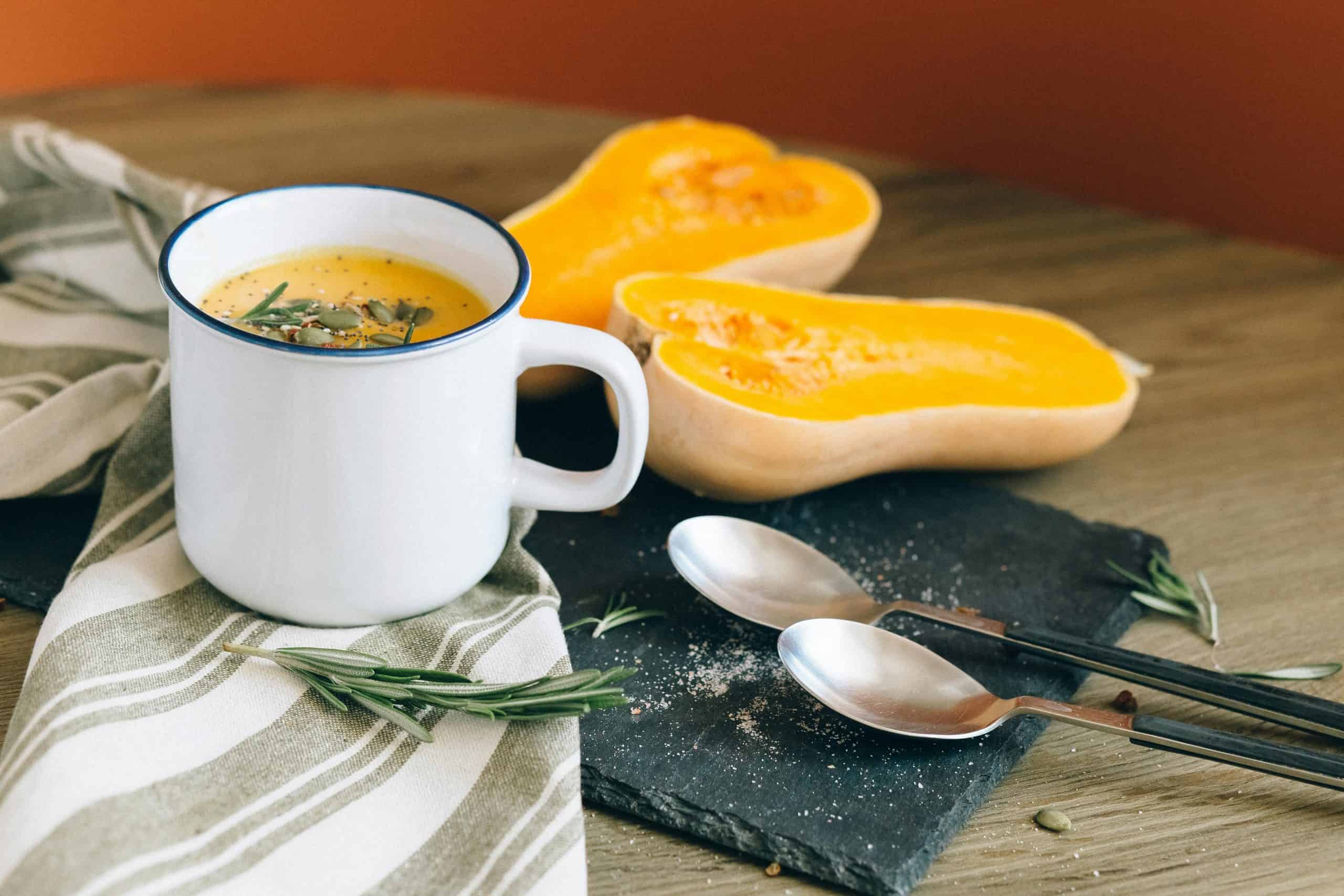Pumpkin vs. Butternut Squash: Which Fall Favorite Do Experts Say Is Healthier?
Every fall, grocery store aisles turn into a battlefield of gourds. On one side: the round, friendly pumpkin that screams, “carve me” or “bake me into a pie.” On the other hand, the awkwardly-shaped butternut squash looks like it belongs in a blacksmith’s shop instead of your kitchen. Both look seasonal, both make a great Instagram flat lay—but when it comes to nutrition, which one actually comes out on top?
Turns out, nutritionists have weighed in on this debate, and the numbers tell a surprisingly clear story. Spoiler: the “winner” isn’t always the one sitting prettily on your porch.
The Seasonal Showdown
At first glance, the two fall staples seem like twins separated at birth. Same warm orange hue, same association with cozy sweaters and crunchy leaves. But nutritionally? They’re closer to distant cousins. Sure, they belong to the same extended squash family, but their nutrient breakdowns tell very different stories.
Think of it like this: both are dogs, but pumpkin is your compact, low-maintenance terrier, while butternut squash is the sturdy working breed that brings a little more heft to the table. Both lovable, both useful, but not interchangeable.
Fall’s Golden Child: The Health Benefits of Pumpkin
Balancing Blood Sugar the Seasonal Way
This colorful vegetable didn’t earn its fall celebrity status just because Starbucks said so. It actually contains plant compounds—polysaccharides—that help your body release insulin more effectively. Megan Grover, director of education and research at Sarah Wragge Wellness, explains that these compounds “promote the discharge of insulin, and thus help regulate blood glucose levels.”
In plain English? It can help you avoid that dreaded sugar crash that usually follows a big meal. Add in compounds like trigonelline and nicotinic acid (studied for their role in managing diabetes markers), and it becomes more than just pie filler—it’s a legitimate ally in blood sugar control.
The Vitamin A Boost Your Skin Loves
This autumn star is also loaded with beta-carotene, which your body converts into vitamin A. Not only is this essential for vision and immunity, but because beta-carotene is fat-soluble, it can be stored in your skin where it acts like a natural sunscreen. Grover explains it helps protect against UV damage and supports skin health.
According to Real Simple, vitamin A also contributes to long-term eye health and immune function, making this gourd more than just a seasonal treat.
Translation: your pumpkin spice obsession might actually be giving you a glow that has nothing to do with your ring light.
The Underrated Nutritional Powerhouse: Butternut Squash
Fiber Benefits You Can Feel
While the more familiar gourd has been busy winning popularity contests, its sturdier cousin has been doing the unglamorous work: delivering fiber, and lots of it. One cup provides about 2.8 grams, compared to less than one gram in pumpkin. That’s nearly five times more.
Fiber isn’t just about digestion—it’s about feeding the good bacteria in your gut and keeping your immune system strong. Grover notes, “A healthy microbiome is essential for gut and immune health.” In short, your gut will thank you for working more of this hearty squash into your fall meals.
Beta-Carotene Benefits for Eyes and Immunity
Pumpkin brings solid numbers, but its cousin takes it further. A single cup delivers close to 6,000 micrograms of beta-carotene—well above the 3,600 found in pumpkin. That’s about half your daily vitamin A needs in just one serving.
Research highlighted by Today shows that winter squashes are packed with carotenoids that protect against age-related vision loss and strengthen the immune system. So if eye health or immunity is on your mind, this variety is the powerhouse you’ll want to lean on.
Nutrition Showdown: A Side-by-Side Look
| Nutrient | Butternut Squash | Pumpkin |
|---|---|---|
| Calories | 63 | 30 |
| Fiber | 2.8g | 0.6g |
| Potassium | 493mg | 394mg |
| Beta-carotene | 5,920μg | 3,600μg |
Nutrient-wise, pumpkin might be lower in calories (only 30 compared to 63), but its cousin wins on fiber (2.8g), potassium (493mg), and beta carotene (5,920). These nutrients are key for satiety, cardiovascular health, and immune support.
What Nutritionists Really Think
Experts tend to agree: the longer gourd has the edge. Grover notes that both of these fall vegetables are packed with antioxidants and polyphenols, compounds known to reduce inflammation and promote skin health. But she highlights the higher fiber and calorie density as major advantages for gut health and satiety.
Melanie Marcus, a registered dietitian with Dole Food Company, also gives the nod to this delicious vegetable, specifically for its beta-carotene content and its benefits for vision and immunity.
So while it isn’t exactly a lightweight, this hearty option consistently comes out ahead on paper.
How to Use Them in Your Fall Menu
Before you toss every pumpkin recipe aside, let’s be realistic: both gourds deserve space in your kitchen. Pumpkin offers a lighter option with surprising blood sugar benefits, while its sturdier cousin brings the fiber and vitamin punch.
The takeaway? Don’t think of it as a “winner-take-all” situation. Think of it as a tag team. Classic pies and soups still belong on the table, but for extra weekday nutrition, let the longer squash take the lead.
The Final Word on Pumpkin vs. Butternut Squash
The infamous debate isn’t about crowning one true champion—it’s about understanding what each gourd offers. Pumpkin is the familiar crowd-pleaser, light and blood-sugar friendly, while butternut squash is the workhorse packed with fiber and beta-carotene.
At the end of the day, the healthiest choice is the one you’ll actually eat. So whether you lean toward pumpkin, prefer its sturdier cousin, or happily enjoy both, you really can’t go wrong. Next time you’re staring at the produce aisle, give that oddly shaped squash another chance—it just might become your new fall favorite.
Disclaimer: This article is for informational purposes only and is not intended as medical advice. Nutritional needs vary from person to person, and the information provided here should not be used as a substitute for professional medical guidance. Always consult with a qualified healthcare provider or registered dietitian before making changes to your diet or health routine.







